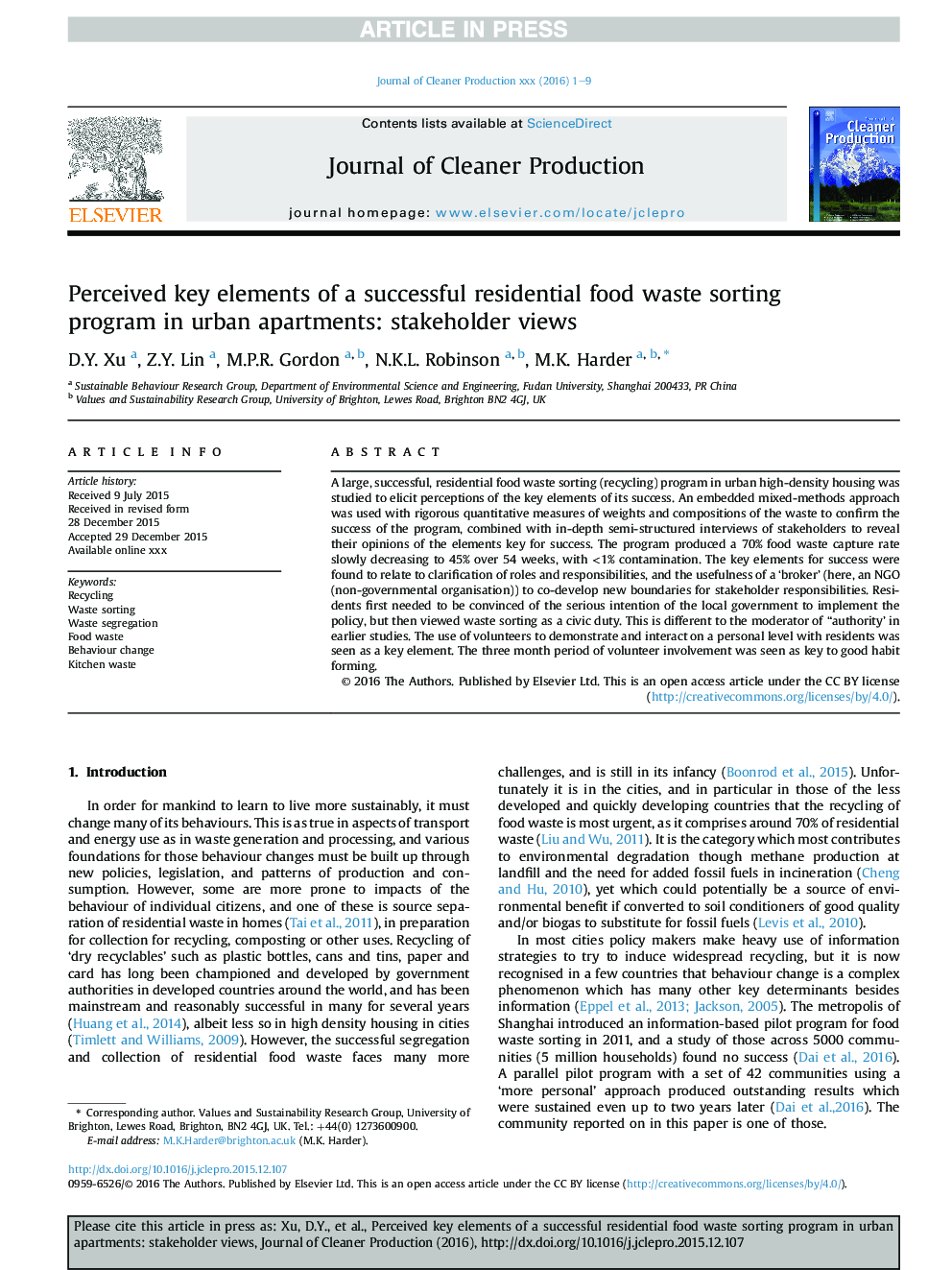| Article ID | Journal | Published Year | Pages | File Type |
|---|---|---|---|---|
| 10687798 | Journal of Cleaner Production | 2016 | 9 Pages |
Abstract
A large, successful, residential food waste sorting (recycling) program in urban high-density housing was studied to elicit perceptions of the key elements of its success. An embedded mixed-methods approach was used with rigorous quantitative measures of weights and compositions of the waste to confirm the success of the program, combined with in-depth semi-structured interviews of stakeholders to reveal their opinions of the elements key for success. The program produced a 70% food waste capture rate slowly decreasing to 45% over 54 weeks, with <1% contamination. The key elements for success were found to relate to clarification of roles and responsibilities, and the usefulness of a 'broker' (here, an NGO (non-governmental organisation)) to co-develop new boundaries for stakeholder responsibilities. Residents first needed to be convinced of the serious intention of the local government to implement the policy, but then viewed waste sorting as a civic duty. This is different to the moderator of “authority' in earlier studies. The use of volunteers to demonstrate and interact on a personal level with residents was seen as a key element. The three month period of volunteer involvement was seen as key to good habit forming.
Related Topics
Physical Sciences and Engineering
Energy
Renewable Energy, Sustainability and the Environment
Authors
D.Y. Xu, Z.Y. Lin, M.P.R. Gordon, N.K.L. Robinson, M.K. Harder,
